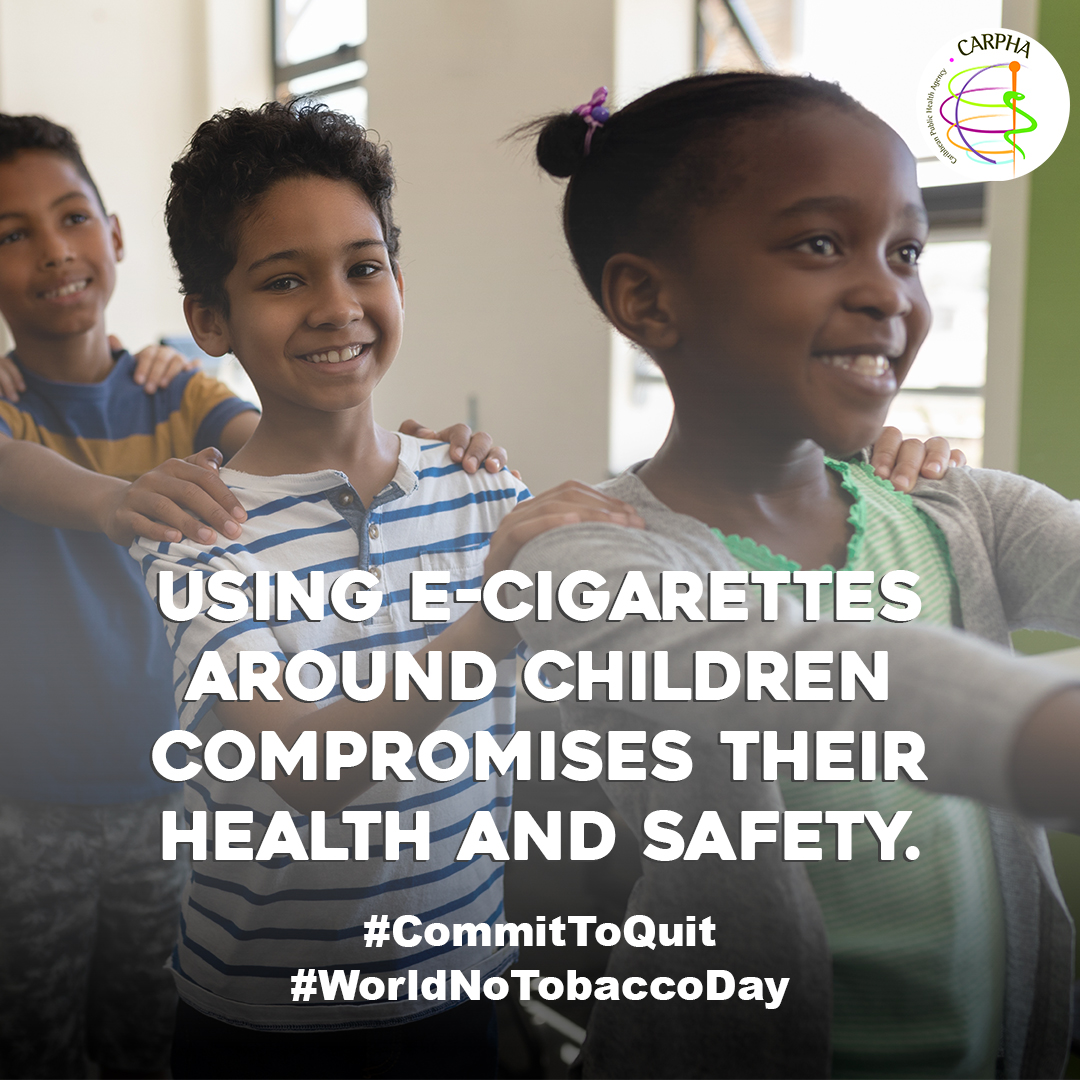PORT OF SPAIN, Trinidad (CARPHA) – “Tobacco use remains a public health problem in the Caribbean Region. It is a preventable cause of illness and death, yet it contributes to the development of non-communicable diseases including heart disease and stroke, diabetes, respiratory diseases, and cancer. These diseases are the greatest contributors to illness and deaths in the CARICOM region,” stated CARPHA executive director Dr Joy St John in observance of World No Tobacco Day.
Observed annually, May 31, World No Tobacco Day aims to inform the public of the dangers of using tobacco, the business practices of tobacco companies, and what people can do to claim their right to health, and healthy living and to protect future generations.
Cigarette smoking is the main form of tobacco use, and men are far more likely to use cigarettes than Caribbean women. The prevalence of current tobacco smoking ranges from 13.3 percent in Barbados to 23 percent in Guyana for adult males and from 7.7 percent in Barbados to 12.6 percent in Guyana for adult women.
The non-Latin Caribbean has the second-highest prevalence of tobacco use among 13-15 years olds (14.4%) in the Americas that ranges from 7.5 percent in Antigua and Barbuda to 25.3 percent in Dominica. In Antigua and Barbuda, Saint Lucia and Trinidad and Tobago adolescents use more e-cigarettes than conventional cigarettes.
This year’s theme is Commit to Quit. Quitting smoking is one of the most important steps you can take to improve your health. People who quit smoking after having a heart attack reduce their chances of having another heart attack by 50 percent.
According to the World Health Organization (WHO) the benefits of quitting tobacco are almost immediate.
- Within 20 minutes of quitting, your heart rate and blood pressure drop;
- Within 12 hours, the carbon monoxide level in your blood drops to normal;
- Within 2-12 weeks, your circulation improves and lung function increases;
- Within 1-9 months, coughing and shortness of breath decrease;
- Within 5-15 years, your stroke risk is reduced to that of a non-smoker.
- Within 10 years, your risk of lung cancer falls to about half that of a smoker, and your risk of cancer of the mouth, throat, oesophagus, bladder, cervix, and pancreas decreases;
- Within 15 years, your risk of heart disease is that of a non-smoker.

The CARICOM heads of government in 2007 declared their commitment to advancing the tobacco control agenda in the region through the 2007 Declaration of Port of Spain. The WHO Framework Convention for Tobacco Control (FCTC)3 which came into effect in 2005, was developed in response to the globalisation of the tobacco epidemic. This treaty is the first negotiated by the World Health Organization (WHO) and affirms the right of all people to the highest standards of health.
CARICOM countries have signed on to the FCTC, and most have also ratified the FCTC. The countries are obliged to implement the articles of the convention. This includes enacting national legislation to ensure smoke-free work and public spaces; eliminating illicit trade; banning advertising, promotion and sponsorship; banning sales of tobacco to minors; health warnings on tobacco packages; and increasing tobacco taxation. However, implementation and progress have been slow in some countries.
Although there is a CARICOM standard for the use of graphic health warnings on tobacco products, it has not been implemented in all Member States.
CARPHA urges Member States to make every effort to strengthen multi-sectoral policies and community-based initiatives to discourage tobacco use. Member States are encouraged to scale up efforts by implementing MPOWER measures that correspond to at least 1 provision of the WHO FCTC. The MPOWER measures are:
- Monitor tobacco use and prevention policies
- Protect people from tobacco use
- Offer help to quit tobacco use
- Warn about the dangers of tobacco
- Enforce bans on tobacco advertising, promotion and sponsorship
- Raise taxes on tobacco.
Additionally, Member States should ensure national laws regulate the use of e-cigarettes and heated tobacco products (HTPs) to prevent the use by minors and non-smokers. Electronic nicotine delivery systems (ENDS) and electronic non-nicotine delivery systems (ENNDS), commonly referred to as e-cigarettes, HTPs are like all other tobacco products, inherently toxic and contain carcinogens.
Reducing the harm caused by tobacco requires a whole of society approach – one that engages governments, civil society, communities and you. Tobacco use threatens the health of your friends and family, not just you.
Smoking or using e-cigarettes around women and children compromises their health and safety. Quitting smoking decreases the excess risk of many diseases related to second-hand smoke in children such as respiratory diseases, such as asthma.
By using tobacco, you are losing a lot more than you think – your money, your looks, the health of your family and loved ones, your health, your life . . . will you Commit to Quit?





